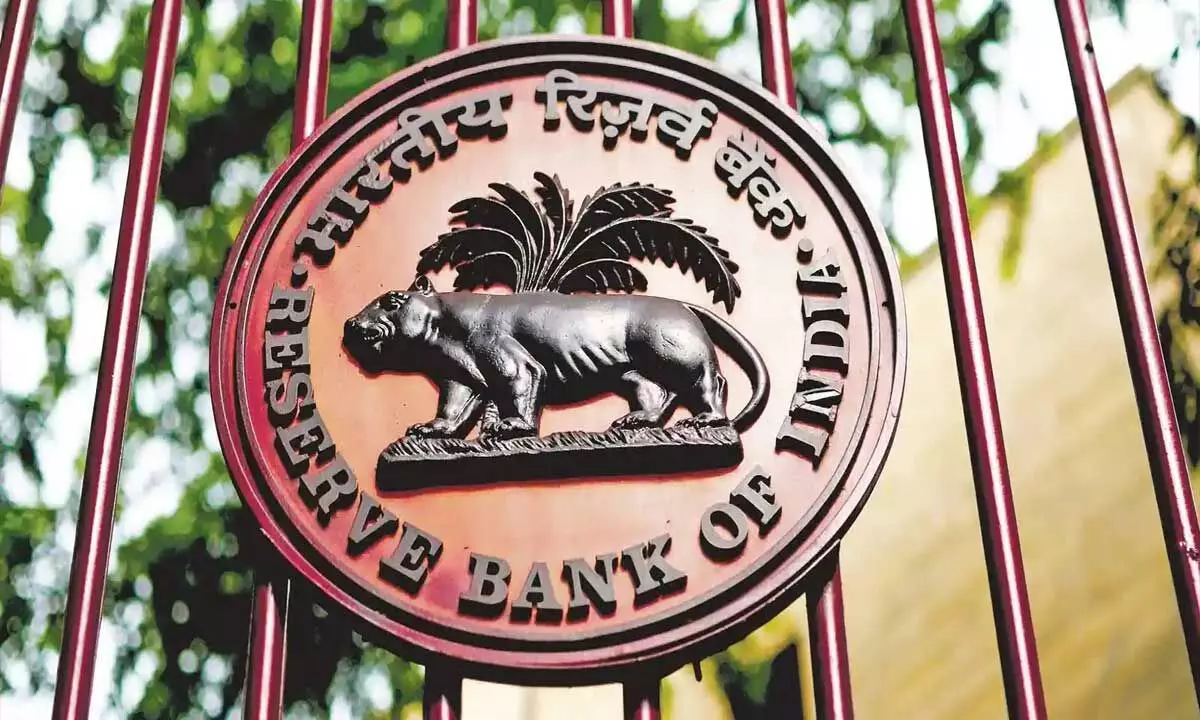With 25bps hike, RBI takes repo rate to 7-yr high
After raising repo rate by cumulative 250bps in 6 tranches to 6.5% since May 2022, RBI keeps all options open for more hikes as core inflation remained high; MPC concerned over core inflation, which stayed above 6% for past 15 months
image for illustrative purpose

- RBI lowered CPI forecast to 6.5% for current fiscal from 6.7%
- Inflation expected to moderate in FY24
- It's likely to rule above the 4% target
- Retail inflation rate eased to 5.72% in December from 5.88% in Nov, falling below the RBI's
- Upper tolerance band of 2-6% for a 2nd straight month
- Core inflation, which excludes more volatile food and fuel prices, was still at 6.1%
RBI raised interest rates by 35 bps in Dec 2022, 40 bps in May and 50bps each in June, August and September
Mumbai: The Reserve Bank of India (RBI) slowed the pace of interest-rate increases for the second straight time when it on Wednesday expectedly hiked borrowing costs by 25 basis points, while keeping the door open for more hikes as core inflation remained high.
The move to raise the rate will make loans - including housing and auto - and corporate credit expensive. The RBI's six-member Monetary Policy Committee (MPC) voted 4-2 to raise the benchmark repurchase or repo rate to 6.50 per cent, a seven-year high and retain its stance of withdrawing accommodation, which was adopted early last year.
This is the sixth straight increase in interest rates since May last year, and the cumulative hike now totals 250 bps. The RBI raised interest rates by 35 bps in December 2022. Rates were hiked by 40 bps in May and 50 basis points each in June, August and September. While the headline inflation print has seen a downward trajectory and has remained below the upper limit of 6 per cent in November and December 2022, the MPC continues to have concerns about the core inflation, which has stayed above 6 per cent for the past 15 months. "The stickiness of core or underlying inflation is a matter of concern. We need to see a decisive moderation in inflation. We have to remain unwavering in our commitment to bring down CPI headline inflation," RBI Governor Shaktikanta Das said, while announcing the committee's decision.
Adjusted for inflation, the policy rate still trails its pre-pandemic levels, Das said, adding liquidity remains in surplus. On the growth front, the RBI projected GDP growth at 6.4 per cent for the fiscal starting April 1 (2023-24), down from 7 per cent in the current year. It also believes that the global growth environment has slightly improved, with the latest global data indicating higher prospects of a soft landing. Das said the Indian economy remains resilient in the face of considerable uncertainties on global commodity prices.
"The global economic outlook does not look as grim now as it did a few months ago. Growth prospects in major economies have improved, while inflation is on a descent though still remains well above target in major economies. The situation remains fluid and uncertain," he said. "Commodity prices may remain firm with the easing of Covid-19 related restrictions in some parts of the world."
The liquidity in the system is expected to remain slightly in surplus with most liquidity enhancement measures of the pandemic period having been withdrawn. Other measures announced after the MPC meeting include allowing lending and borrowing of government bonds, issuance of guidelines on green deposits and climate financing risks and allowing foreigners access to the Unified Payments Interface (or digital transactions).
The RBI lowered the consumer price inflation (CPI) forecast to 6.5 per cent for the current fiscal from 6.7 per cent. While inflation is expected to moderate in 2023-24, it is likely to rule above the four per cent target. The retail inflation rate eased to 5.72 per cent in December from 5.88 per cent in the previous month, falling below the RBI's upper tolerance band of 2-6 per cent for a second straight month, though core inflation, which excludes more volatile food and fuel prices, was still running at 6.1 per cent. "Going ahead, the food inflation outlook will benefit from a likely bumper Rabi harvest led by wheat and oilseeds," Das said.
Among the measures announced on Wednesday was allowing lending and borrowing of government securities or G-secs with a view to "provide investors with an avenue to deploy their idle securities, enhance portfolio returns and facilitate wider participation".
"This measure will also add depth and liquidity to the G-sec market; aid efficient price discovery; and work towards a smooth completion of the market borrowing programme of the centre and states," Das said. The RBI also restored market hours for the Government Securities market to the pre-pandemic timing of 9 am to 5 pm. On the rupee, Das said it has remained one of the least volatile currencies among its Asian peers.
Going ahead, the food inflation outlook will benefit from a likely bumper Rabi harvest led by wheat and oilseeds. Allowing lending and borrowing of G-secs with a view to provide investors with an avenue to deploy their idle securities, enhance portfolio returns and facilitate wider participation
- Shaktikanta Das, RBI Governor

